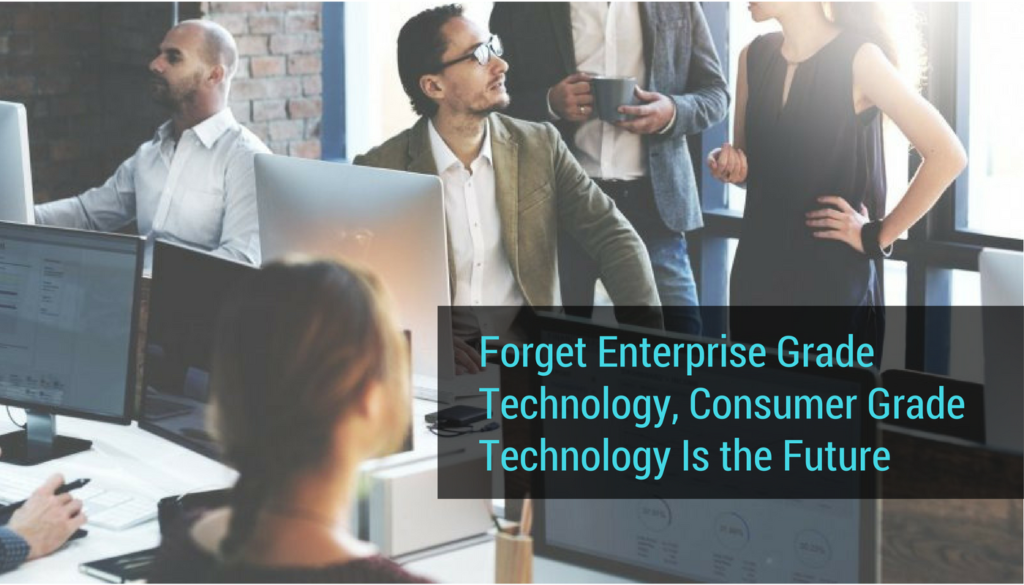
Over the past few years we’ve placed an unhealthy emphasis on deploying enterprise grade technologies. Although there is no standard definition of what this actually means, it usually refers to technology that is suited to the needs of a large organization versus being used by individuals or consumers (consumer grade technology). Ideally this means it’s more robust, more secure, more flexible, and more geared for IT professionals to manage and deploy. But really what this ends up meaning inside of large organizations is clunky, outdated software. I’ve seen many of these technologies, and I’m always amazed that people actually use them.
I equate this to the organization buying a giant bulletproof tank when employees really want and need something more stylish, maneuverable, flexible, modern, and attractive. This is why so many new enterprise tools today are modeling themselves after technologies we use all the time in our personal lives (platforms like Twitter, LinkedIn, Facebook, or Google). In a sense, consumer technologies are becoming enterprise technologies. A simpler way for organizations to look at this is by giving tools to employees that actually look like they are designed for humans and not for rocket scientists or developers. My definition of a consumer grade technology is something that is so well designed, useful, and valuable that you would consider using something similar in your personal life if it existed.
Think of the file-sharing tools you use at work. Would you use something similar in your life to organize your personal information? What about the billing and invoice system you have? Would you use the same technology to organize your personal finances? What about your customer relationship management system? Would you store your contacts using the same technology? You can see where this is going. We have access to so many amazing technologies and platforms in our personal lives, but for some reason when we show up to work, we are stuck using the same tools we used decades ago. Imagine if you still had one of those old TVs where you had to get up and physically change the channel, or a rotary phone or old IBM Commodore computer in your home. You likely wouldn’t, because the technology is so outdated.
This is why organizations like The Royal Bank of Scotland have rolled our Facebook at Work (the business version of Facebook) to over 100,000 employees. They recognize that employees use Facebook in their personal lives and want something that emulates that experience in the workplace. Roche, the 90,000-person company that specializes in research-focused health care, recently switched over to G Suite (formerly called Google for Work) for the same reasons. These are just two of the many organizations around the world that focus on giving employees tools that emulate the platforms and technologies they would use in their personal lives. There are a few benefits to doing this.
Most of the time when organizations deploy new, complex technology solutions, there’s a lot of training and education that is required to teach employees how and why to use these new tools. Granted, education and training is needed for any type of change, but when employees are familiar with the technologies, they are much more likely to get up to speed quicker. Familiarity also removes complexity, which means employees will actually use the tools. Consumer grade technologies are also more modern, more user friendly, and in general better looking than their traditional enterprise counterparts. Again this increases the likelihood of adoption, but it also has a bit of the coolfactor, which employees certainly value and appreciate. Deploying consumer grade technologies is a big factor for the technological environment.
To create a modern work experience and enable employees to be as effective and engaged in their jobs as possible, shift your thinking away from enterprise grade technologies and towards consumer grade. If you look at the technologies your employees are currently using, you will most likely see ways they can be improved and upgraded into systems employees would actually use outside of work. To learn more about using technology for positive employee experience, check out my latest book here.
The post Forget Enterprise Grade Technology, Consumer Grade Technology Is the Future appeared first on Jacob Morgan.



